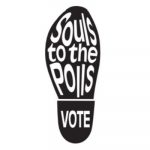Classical
The Fall
The mid- to late ‘70s was a time of musical change. If the ’60s “free love” culture, though hopeful, was not enough to transform mass awareness, then the “fuck you” attitude of punk and post-punk was the necessary conduit for change. Though The Ramones and The Sex Pistols captured the spotlight, no other band was quite as prolific and influential as The Fall. Throughout their history, which spans 30+ years, 50-some lineups and over 20 records, The Fall remain true to their roots. The Fall approach each release with a freshness orchestrated by stoic frontman Mark E. Smith and Post-TLC Reformation!, is no exception. The first track, “Over, Over,” begins with a menacing laugh and segues into, “I think it’s over now/I think it’s ending/I think it’s over now/I think it’s beginning.” Accompanied by a droned-out bass, a simple guitar progression and ambient sounds, “Over, Over” is an homage to cycles. This album is raw and some tracks sound improvised. “Insult Song” is a narrative, almost abrasive recounting of past show experiences interlaced with dark imagery and a satirical, intermittent chuckle from Smith. The beat is steady and syncopated, with a slap bass progression and melodic guitar solos. The overall effect complements the development of the story it tells. Post-TLC Reformation! is dark, but not depressing. The vocal style is consistently dreary, but the upbeat bass and uncompromising guitar riffs create a harmonizing juxtaposition that never lets the listener get too far down to get back up again. It’s groovy. VS
Apr 1st, 2007 by Blaine SchultzApril 2007
April 3rd The Academy Is… Santi Fueled By Ramen Boys Like Girls Boys Like Girls Red Ink/Columbia Brandi Carlile The Story Columbia Chevelle Vena Sera Epic Jarvis Cocker Jarvis Rough Trade/World’s Fair Fountains of Wayne Traffic and Weather Virgin Kings of Leon Because of the Times RCA Los Straitjackets Rock en Espanol, Vo. 1 Yep Roc Maxïmo Park Our Earthly Pleasures Warp Andy Partridge Monstrance Ape House/Ryko Static-X Cannibal Reprise Timbaland Timbaland Presents Shock Value Paul Wall Get Money – Stay True Atlantic The Waterboys Boy of Lightning U.K. – Universal April 10th Army of Me Citizen Doghouse Blonde Redhead 23 4AD Bright Eyes Cassadaga Saddle Creek Coco Rosie The Adventures of Ghosthorse and Stillborn Touch & Go From Autumn to Ashes Holding a Wolf By the Ears Vagrant Grinderman Grinderman Anti-/Epitaph Guster Satellite EP Reprise Nekromantrix Life is a Grave & I Dig It! Hellcat/Epitaph The Terrible Twos If You Ever See an Owl Poquito/Vagrant April 17th The Comas Spells Vagrant Avril Lavigne The Best Damn Thing RCA Page McConnell Page McConnell Legacy Nine Inch Nails Year Zero Nothing/Interscope The Old Soul The Old Soul Friendly Fire Priestbird In Your Time Kemado April 24th Arctic Monkeys Favourite Worst Nightmare Domino Bill Callahan Woke on a Whaleheart Drag City/Caroline Cowboy Junkies At the End of Paths Taken Zoe/Rounder The Electric Soft Parade No Need to be Downhearted Better Looking Gus Gus Forever Groove Atack Kalli While the City Sleeps One Little Indian Mando Diao Ode to Ochrasy Mute Midnight Movies Lion the Girl New Line Patti Smith Twelve Columbia The Veils Nux Vomica Rough Trade/World’s Fair
Apr 1st, 2007 by Erin WolfThe Arcade Fire
“World War Three, when are you comin’ for me?” Win Butler of the Arcade Fire poses the question in Neon Bible, which is saturated with natural disasters, social unrest, fundamentalist discontent and the toxic emissions from celebrity culture. Arcade Fire opens its mouth to the world, attempts to swallow it, digest, then spit it back out for our benefit. Fortunately, they pull off the huge feat of addressing cultural and global issues without needing to be punk and without sounding anthematically ridiculous. Stadium act they still are not. Rather, the band has worked on crescendo-ing their status and sound not by venue, but by orchestrating the music into sweeping, gothic proportions which, given their choice of instruments – a pipe organ, accordion, hurdy gurdy and the addition of a military choir and a Hungarian orchestra – seems perfectly appropriate. With a grandiosity that exceeds the debut, Funeral, Neon Bible sweeps in with the sinister staccato rumblings of a piano akin to a cold front before a summer storm, thundering alongside windy string arrangements. Tracks dodge between orchestra pit pop and rock epics, finding gospel-influenced ballads tagged with southwestern brass along the way. As Neon Bible reflects on the situation of “us versus the world,” it comes dangerously close to compacting too much doom and gloom into an album that was definitely meant to deliver a blow, not a nudge; after awhile, the same bruise gets punched. The only respite from the global explosion of chaos is the closing track, “No Cars Go” (re-recorded from a previous EP). The Arcade Fire may have favored ending high and hopeful with a message more about running to freedom than running from global assault.
Apr 1st, 2007 by Erin WolfThe Decemberists’ Chris Funk
Anyone with even a minute awareness of The Decemberists would find it challenging to resist asking guitarist Chris Funk all kinds of ridiculousness, like the random “What’s your favorite Western?” or the general “Why are you guys so fun?” But, it takes only one spin of anything in their catalogue to understand – Guitarmageddon, stage antics and official drink aside – that they are indeed serious musicians. With Guitarmageddon, stage antics and official drink considered, however, perhaps “serious about music” would be a better phrase. Multi-instrumentalist Funk, who personally handled acoustic guitar, banjo, bouzouki, dulcimer, electric guitar, hurdy-gurdy, pedal steel and percussion on 2006’s The Crane Wife alone, is fresh off a European tour and at home in Oregon, a state whose spectacle and character lured him from the Midwest over a decade ago. “I felt like I had done all I could do,” says the Indiana native. “I wanted to move out to Oregon to play music, for some reason.” Portland may now be the hub for a list of acts just as extensive as Funk’s performance credits, but, he adds, “at the time it wasn’t known as a musical city, and not a music-industry city by any stretch of the imagination.” Intuition paid off for Funk, who has toured with The Decemberists for around six years, a substantial tenure. During that short span, they have cultivated an active community of fans and released four LPs and five EPs (including two online exclusives) to critical kudos. As impressive as that sounds, to Funk, it only means that he, vocalist Colin Meloy, keyboardist Jenny Conlee, bassist Nate Query and drummer John Moen simply “happen to find ourselves in a rock band that people marginally care about.” The understating Funk knows that “blowing people’s minds is really difficult to do these days” and that not many since Jimi Hendrix have accomplished anything of the sort. “I’m not saying our band is doing it; I don’t think our band is,” he says. Yet sitting somewhere between Hendrix and today’s Top 40 are The Decemberists. So what are they doing exactly? “We’re a pop band and that’s about it.” It’s clear that Funk is realistic, even while contributing to a group especially keen on narrative, mythology and folklore. That being said, The Decemberists aren’t your trendy, textbook cool, or even a particularly marketable band, which is why signing Capitol Records to push their new release last year, instead of their alma mater Kill Rock Stars, was a potentially risky move. Thankfully, outside of the inevitably larger venues and increased ticket prices, corporate pitfalls have been innocuous thus far to the quintet, who places “serving music” above all else. “The responsibility is initially with yourself,” Funk explains. Integrity will prevent the release of anything they’re “not into” in the future, regardless of what label is driving their deadlines. “When we make a record, we feel an unspoken responsibility to make ourselves happy and entertain ourselves.” The Decemberists are celebrated for their over-the-top theatrics and […]
Apr 1st, 2007 by Amber HerzogLow
Two years ago, The Great Destroyer marked a period of incredible transition for Low. Not only did the album itself bristle with challenges to the band’s established method of slow and steady and hauntingly beautiful, but the period shortly after its release also saw bassist Zak Sally leave the band and founding member Alan Sparhawk check into the hospital for mental health treatment. Clearly, there were shakeups, and Drums and Guns refracts the altered configuration of thoughts and people. Producer Dave Fridmann returns to work the subtle transformations that informed his efforts on The Great Destroyer (and with bands like The Flaming Lips and Mercury Rev) ; new bassist and vocalist Matt Livingston fills no one’s shoes but his own and the album feels constantly unsettled. Even now, with listeners braced for new directions, Low’s music surprises. The opening track, “Pretty People,” crackles in with static and feedback as it raises a golem of Eastern-flavored psychedelic meditation. “Always Fade” sets an electronic whirl in the background of a jazz-funk bass line and a thunderous cardboard-like snare snap. And “Take Your Time” drops chiming bells over a deliberately skipping loop of church-like vocal cadences and a tinny drum-machine rhythm. Even in relatively familiar territory – the vocal harmonizing between Sparhawk and wife/drummer Mimi Parker is as tenderly hushed as ever on “Belarus” – Low orient themselves to see and hear things differently. Drums and Guns mesmerizes listeners to do the same. VS
Apr 1st, 2007 by Jon Gilbertson















